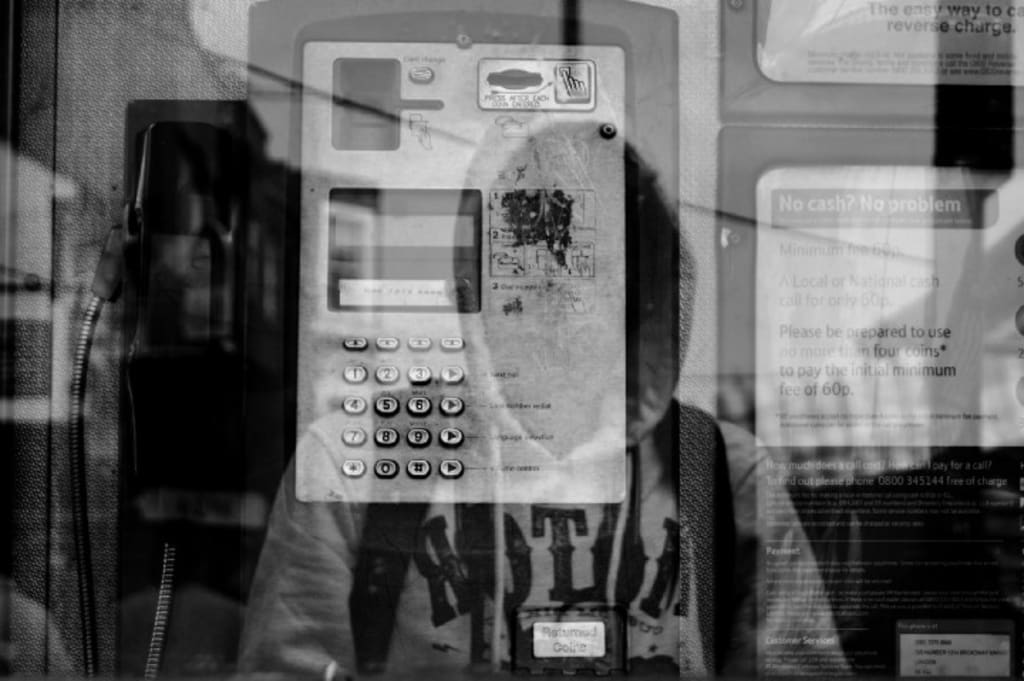How to Protect Yourself from Financial Fraud
Scam, Scam, Scam

The pursuit of financial gain is typically behind most cons, although some are more transparent about it than others. Scammers could try to convince you to pay for something you don’t need or ask you to put money into something shady in order to get their money. The majority of them, on the other hand, are designed to harvest information for the purpose of financial gain.
More specifically, they seek any credentials that you use when logging onto online banking or shopping with a credit card, as well as any information that they can use to access your email or any online accounts. In some instances, they are looking for information that will allow them to assume your identity and apply for financial products such as loans and credit cards in your name.
According to one report, fraudulent impersonation saw an increase of 84% during the first half of the year 2022. You should be concerned about more than just the things that are readily apparent. Even a seemingly harmless quiz on a social media website could be exploited to obtain information about you, such as your first pet, your first school, or your date of birth. This information could then be used elsewhere, for example, to answer a security question safeguarding your online banking account.
There are a few disadvantages that come along with the many advantages that can be gained from the ease of communication in the modern world. One of these disadvantages is the high number of fraudulent financial schemes that are currently in circulation.
Scam Scam Scam
We should all be aware of the strategies that are utilized so that we may steer clear of them and instead direct our financial resources toward investments that are likely to result in a profit rather than a loss.
The COVID-19 has prompted a wave of bogus emails and phone calls that appear to originate from the government, the NHS, the HMRC, or the Track and Trace project, but which are actually attempts to phish your information (see below) or to infect your computer with malware. Other cons simply include the con artist attempting a scheme in the expectation that it will affect a large number of victims. This is the reasoning behind the prevalence of cons involving the TV license, BT Broadband services, or an issue with your Windows laptop. Even PCR test and Retest after traveler cleared their airport immigration and yet being called up by scammer to do retest where they ask for advance payment
You can even get notifications asking you to renew your membership to Amazon Prime.
Swindlers are not aware of whether or not you make use of the items or services that are mentioned, but they are aware that a sufficient number of people do, so it is worth a try.
You will need to rely on your own discretion because, regrettably, there is no quick and simple technique to identify bogus news.
Examine the document that it was taken from. Is it a respectable journalistic organization, or is it rather a group with a particular political leaning?
Conduct a speedy search on the Internet to see if you can find out. You can also check to see if the same news is being published by well-known sources, such as a newspaper or the BBC, and determine whether the information being reported are accurate or whether they are being distorted.
For instance, double-check any quotes. Has the individual whose words are allegedly quoted ever actually said those words?
And while it is always easy to believe that certain topics are too “hot” for the mainstream media or that the established sources are biased, the truth is that the narrative doesn’t stand up when exposed to any serious investigation the majority of the time.
Do Not Disclose Any of Your Private or Financial Information to Others.
An imposter who poses as someone they are not, such a member of your bank’s staff, is just one example of the numerous cons that are out there. Frequently, they will ostensibly ask you to confirm the number of your credit card, but they will wait for you to mention it before they do so.
Never give anyone over the phone who has initiated the contact your financial information, no of how credible they may appear to be.
Question Odd Communication, even from Acquaintances
If an old acquaintance or a family member that you don’t communicate to very often sends you a second friend request on Facebook or another social networking platform, and then sends you a private message that is loaded with awkward conversation, spelling problems, and a desperate plea for money… Think about it again.
It is prudent to consider the possibility that they are not genuine. Get in touch with a different member of the family or a friend you share with them, or give them a call on the phone, to determine whether or not their account has been compromised.
In Taiwan ,recently there were tons of news of taiwanese people scamming their friends, some were tricked to Cambodia and were threaten their lives by local mobster ,who withhold their passports and insist the victims to scam their closest friend to trick them of their saving , these people some who fail to follow to such request , were even put on board ships on international water and remove of their internal organs to satisfy their quote requirement, as the whole operation operating out from Cambodia were controlled by former drug lords and militants
Do not make an investment in a quick money-making opportunity simply to keep the peace with your relative if he or she is urging you to do so. Make sure you do your research and ask questions.
If you end up blowing through all of your funds on retirement because you were afraid of upsetting this person, the damage to your relationship will be even worse in the long term.
Ignore any e-mails that appear to have opportunities for financial gain.
The vast majority of us have been on the receiving end of emails like this one, which claim that the sender has a deceased relative who has left them a substantial estate. They are looking for someone who can both transmit and deposit money, and in exchange for your assistance, they will divide the revenues between you and themselves. It can’t be emphasized enough that you shouldn’t respond to these emails under any circumstances. Get rid of them, then continue.
Never, ever send money to unknown individuals.
The vast majority of situations in which you are asked to transmit money are fraudulent. This includes a wide variety of opportunities to work from home that may be found online. One typical illustration of this is a fraud known as the mystery shopper scheme.
You are requested to make a purchase at a given establishment and provide feedback on it. They will mail you a check that is a forgery to cover your expenditures in addition to your “compensation.” You are going to need to send some amount of the payment back to them (sometimes what you are “reviewing”). The cheque turns out to be a fake in the end, and you are out the money that you wired.
A similar con is perpetrated on websites like Craig-list, and it includes sending an incorrectly sized check. They will send you a check for a thousand dollars for an item that only costs two hundred dollars, and they will ask you to wire the difference. The same con, basically. Never send money through wire!
Many people who are attempting to defraud you out of your money will tell you a narrative that breaks your heart and beg you to assist them in getting out of a difficult situation.
Another type of con artist will play on your desire to amass wealth quickly and convince you that they will share some of their fortune with you if you would just send them some money to get things started. They will do this by appealing to everybody’s greed instinct
You should always say no if someone wants you to send them money. There are a significant number of cons that are conducted in this manner, and you can be certain that it is never in your best interest to agree with their demands.
Always Pay Attention to Your Gut Instincts
If something seems too good to be true, there is a strong chance that it is. Do you get a queasy feeling in the pit of your stomach whenever you talk to the person on the other end of the phone or whenever you are going to submit your financial information back to an organization that claims to be legitimate? You can’t afford to ignore this.
Cons that target people’s finances are common. There are times when every single one of us is vulnerable in some way or another. You can sidestep the majority of problems, however, if you just put some thought into it . Remembering these pointers can help protect you and your family from experiencing a loss of wealth.
About the Creator
Estalontech
Estalontech is an Indie publisher with over 400 Book titles on Amazon KDP. Being a Publisher , it is normal for us to co author and brainstorm on interesting contents for this publication which we will like to share on this platform
Enjoyed the story? Support the Creator.
Subscribe for free to receive all their stories in your feed. You could also pledge your support or give them a one-off tip, letting them know you appreciate their work.






Comments
There are no comments for this story
Be the first to respond and start the conversation.